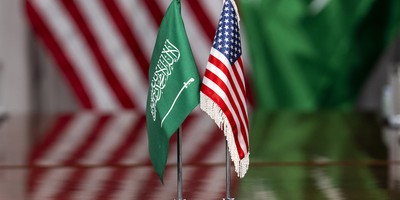During a mission trip to Southeast Asia with International World Changers, Aaron Powell from Bradfordville First Baptist Church in Tallahassee, Fla., walked into a mall bathroom and a Saudi Arabian man tapped him on the shoulder.
The stranger wanted to know what had happened to Powell's arm. The young man looked down at his half-formed hand. He had been born with a congenital defect and had fielded similar questions as long as he could remember.
Nothing had happened, Powell said. That was the way God had made him, and he felt peace about that.
For the past couple of years, the American felt God's calling into the mission field and his hand had become one of his greatest witnessing tools. It opened up conversation and allowed Powell to talk to strangers about God's glory and mercy, which he sees clearly even though the Father saw fit to give him a birth defect. In Southeast Asia, however, God expanded his ability to share.
At the age of 20, Powell still felt awkward around children. As he played soccer during a children's day camp in Asia, kids stared and giggled. Eventually, they gathered the courage to ask what happened. The young man would have normally hid his hand in his pocket, protecting it from their gaze and curiosity, but as he stood in front of them, he realized God needed him to step out of his comfort zone. The Father had used his hand to attract their attention, just like He used it to catch the eye of the Saudi Arabian man. Why should Powell hide it?
Recommended
The student showed his hand to the children and told them God had been made him just the way He wanted him. Powell wasn't ashamed of what God had made.
MORE WORLD CHANGERS GLIMPSES
-- A teenage girl gazed at the little boy in her lap. He had legs as thin as sticks, and he had not yet learned to communicate. He was 10 years old.
"Cup," she said. "Can you say cup?"
Hadi Ibrahim* looked up at her.
"Cup," he said.
Haley Wathen from First Baptist Church in Jacksonville, Fla., applauded. Before she and other International World Changers arrived at Ibrahim's orphanage in Southeast Asia, he had never spoken to the staff. His tiny body seemed like nothing more than flesh over bone and no one knew where he came from or why he didn't speak. Someone simply dropped off him and his older brother one day. Both boys have lived with the orphanage's disabled children ever since.
The two melted Wathen's heart.
"They didn't even have toys," she said. "They had nothing to do. There wasn't anyone loving on them. There wasn't anyone hugging them. My heart was broken for them."
For several days, the teenager and other high school and college students played with the orphans and repainted their home. The few workers who ran the facility rarely had time to interact with the children, much less give proper attention to those with special needs. Simply by holding Ibrahim, Wathen gave him more physical affection than he had experienced in a long time. To her, this was the only method of showing him God's love.
After a few days of interaction, Ibrahim surprised the staff and the American students by repeating words. He sat in Wathen's lap with a children's book while she pointed to and pronounced objects on the pages. The little boy repeated words like "car" and "book" and "bye." When he tired of talking, he simply sat with her, unaware of the miracle he had displayed by speaking.
Ibrahim was happy to be held.
-- In the middle of a Southeast Asian market, a Saudi Arabian man stopped. With his granddaughter trailing behind him, he walked to a gate sandwiched between two stalls and listened to music coming from behind the metal bars.
A group of American teenagers stood in a courtyard and sang worship songs to God. Faruq Jamil* asked three of the foreigners why they had gathered, a question the singers hoped someone would pose.
The courtyard worshipers traveled to Southeast Asia with the International World Changers program. All high school and college students, they came from churches in Texas, Kansas and Florida to work in orphanages, paint murals in Baptist centers and hold day camps for children.
That night, after their designated worship time, they spontaneously decided to sing praises outside their housing facility. For three students, that decision resulted in one of the most memorable encounters on the trip. That night, they gave away an Arabic Bible.
For more than an hour, Jamil talked about the differences between Islamic and Christian beliefs with Nathan Jantz from First Baptist Church in Belle Plaine, Kan.; Kyle Opskar from Pleasantview Baptist Church in Derby, Kan.; and Leah Reeves from Travis Avenue Baptist Church in Fort Worth, Texas. He showed surprise that Christians could pray to God anytime and anywhere without needing to visit a mosque or a church. He became so interested, he asked for a Bible in his native language.
Only two weeks before, missionaries had come through the city with a supply of Arabic Scripture. Opskar found a copy for Jamil.
"I felt that moment was one of the main reasons God told me to come to ," he said.
After receiving his Bible, Jamil promised to read through Scripture as soon as he could. The students have no way of knowing whether he did, but they trust that God will call Jamil to Himself, and they continue to pray for him.
The students had done their job. They had flown to Asia. They had sung praises to God. They had given away a Bible. They knew God would do the rest.
*Name changed. Shiloh Lane writes for the International Mission Board.
Copyright (c) 2011 Southern Baptist Convention, Baptist Press www.BPNews.net
























Join the conversation as a VIP Member